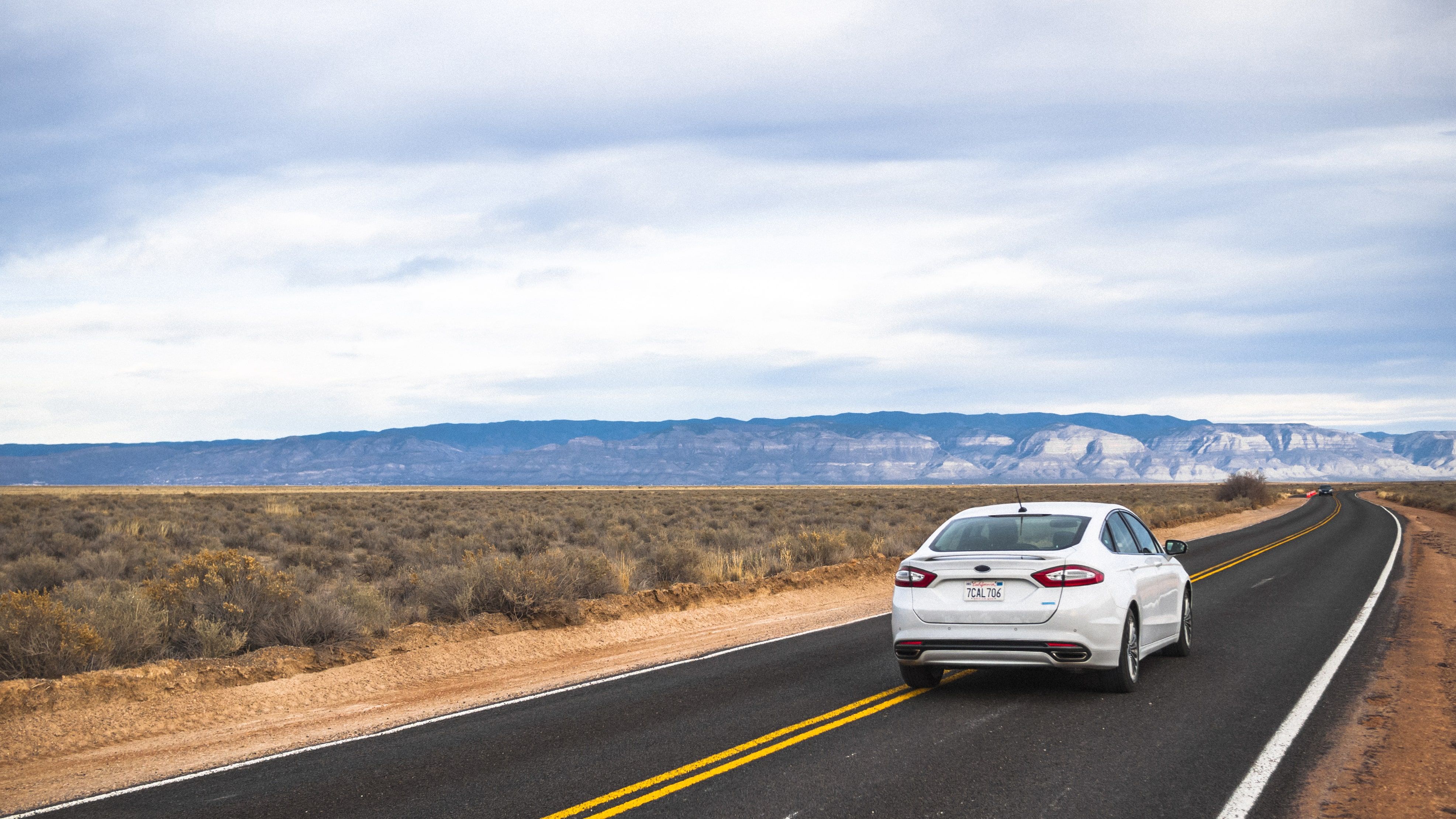Secure Your Car With The Super Car Insurance Plan!
Believe it or Not! Save upto* 75% on TATA AIG Car Insurance
Secure Your Car With The Super Car Insurance Plan!
Believe it or Not! Save upto* 75% on TATA AIG Car Insurance
Everything About Third-Party Liability Insurance
- Author :
- TATA AIG Team
- ●
- Last Updated On :
- 07/04/2025
The world of insurance can seem like a daunting territory for beginners who are new to the terminology. However, as you delve into the concept, you quickly realise that it is not as complex as once thought.
When it comes to four-wheeler insurance, there are two types to consider: third-party liability car insurance and comprehensive car insurance. As per the Motor Vehicles Act of 1988, to legally drive on Indian roads, third-party liability coverage is mandatory.
Let’s understand what third-party liability insurance means and what is the scope of its coverage.
What is Third-Party Insurance?
To understand third-party liability insurance meaning, it is important to know what is “third-party.”
Third-party insurance is the coverage purchased by an insured member (first party) from an insurance provider (second party) for protection against claims of another (third party).
In terms of car insurance, third-party liability insurance means a kind of coverage that secures the policyholder against legal liabilities towards any third person who may be injured in the unfortunate event of an accident.
In simpler terms, third-party insurance will compensate for accidental damages to a third person or property if the policyholder causes the accident. The claims are subject to the terms and conditions underlined by the insurance company.
Conversely, comprehensive four-wheeler insurance offers holistic protection by not only compensating for third-party liabilities but also paying for a wide range of damages to the insured vehicle. This includes natural disasters, fire, theft, vandalism, accidental damage, and more.
Understanding the nuances of different kinds of insurance covers can help insurance-seekers make informed decisions.
How Does Third-Party Liability Insurance Work?
To better understand third-party liability insurance meaning, let’s explore how the policy exactly works through an example:
First-Party: This is the insured member/policyholder
Second-Party: The insurance provider
Third-Party: The person who has raised a claim against the second party for the damages caused by the first party
With third-party four-wheeler insurance, if you unfortunately end up damaging the property of or injuring a third party, your insurance provider will compensate you for the costs associated with that responsibility.
Read more: First Party v/s Third Party Car Insurance
Third-Party Property Damage or TPPD in insurance refers to coverage for the damage or destruction of property of others. In other words, with coverage for third-party liability, if you end up in an accident, your policy covers the damage or injuries you cause to someone else, and your insurance provider will help pay for those costs.
In the unfortunate event of an accident, the policyholder is expected to inform their insurance provider about the accident. Typically, a claim is filed against the insured member if they are responsible for the accident (or are believed to be by the third party). It is then the responsibility of your insurance company to have this claim cleared.
So, for a hassle-free claim settlement process, it is important to inform your insurance provider at the earliest.
To summarise, with third-party insurance, the TPPD in insurance will take care of any property damage of a third person in addition to compensating for any bodily injury liability.
Features of Third-Party Liability Coverage
Knowing the key features of third-party car insurance will help you easily compare car insurance policies and choose a suitable cover for your insurance needs. Generally, here are the key features of third-party car insurance:
Coverage against damage to third-party person/property with compensation of up to ₹7.5 lakhs
Insurance seekers have the option to purchase the cover either online or offline
In case of any bodily damage or injury to the third party, the compensation is as decided by the Motor Accident Claim Tribunal (MACT)
In addition to the aforementioned, insurance seekers must look for features such as easy claim assistance, high claim settlement ratio, no-claim bonus, easy renewals, etc.
Since insurance is an important financial safety net, it is imperative to choose a reliable insurance provider that can support you during distressing times.
How to File a Third-Party Liability Insurance Claim?
Now that we know what third-party insurance is let’s understand the process of filing a claim against your insurance policy:
Step 1- Incident Report: It is the responsibility of the policyholder to inform their insurance provider about the accident immediately. A delay in speedy notification may lead to claim rejection which can come as an unpleasant shock.
Step 2- Filing an FIR: An FIR must be filed at the nearest police station if the accident has caused significant damage, bodily injury, or death.
Step 3- Gathering the Necessary Documents: All the important documents, such as the insurance policy, driver’s licence, vehicle registration certificate, and FIR copy (if applicable), must be collected
Step 4- third-party and Witness Details: It is important to collect the details of the third party involved in the accident. These details include their name, contact information, and vehicle details. If there are any witnesses to the accident, it is important to make note of their details as well.
Step 5- Submitting the Claim Form: Carefully fill out the claim form given by your insurance provider with all the specified documents and details about the accident
Step 6- Legal Obligations: All third-party claims are settled via the MACT. It is essential to attend the hearings and cooperate with the legal proceedings for a successful claim settlement process.
Step 7- Claim Settlement: Once your claim is approved, your insurance provider settles the amount with the third party.
Prompt action and cooperation with the legal proceedings are the most important aspects of a seamless claim settlement experience.
Benefits of Third-Party Liability Car Insurance
Car insurance with third-party liability acts as a safety net in the event of unforeseeable scenarios and accidents. Here are the benefits of third-party insurance that individuals can avail of:
Legal Compliance for Stress-Free Driving: As mentioned earlier, the Motor Vehicles Act of 1988 makes it mandatory to have third-party liability coverage to ride on Indian roads legally. Getting third-party liability insurance ensures that your savings are not dented in the event of an accident owing to the hefty fines levied by the authorities in the absence of one. Moreover, you can drive with a peaceful mind, knowing that the unforeseeable road scenarios are taken care of by your insurance provider.
Compensates for Third-Party Bodily Injury: Severe accidents can cause bodily injury for a third party and, in extreme cases, may lead to death or permanent disability. In such vexing times, a third-party car insurance steps in to compensate the third party for the damages caused by the policyholder.
Compensates for Damages to Third-Party Property: Additionally, with TPPD in insurance, any damages to a third-party car or property are also compensated by the insurance provider. Generally, the coverage provided in these instances is up to ₹7.5 Lakhs.
Online Policy Purchase Saves Time, Effort, and Money: Contrary to popular opinion, insurance is not an expensive investment, and it is possible to save money with online policy purchases. Not only does this make it easy to compare different four-wheeler insurance policies, but it also gets you a discount on the premiums. Online insurance purchase eliminates the hassle of having to stand in queues, running to and fro from counters, and having to make trips to the insurance office - subsequently saving you time, effort, and money.
Secures the Policyholder Against Financial Liabilities: Most importantly, accidents can be exceedingly distressing, and with the continually rising number of road accidents, it is important to ensure proper protection. Third-party insurance ensures you don’t burn a hole in your savings because of an unplanned mishap on the roads.
Inclusions and Exclusions in Third-Party Liability Coverage
Before investing in any insurance, it is imperative to acquaint yourself with the policy inclusions and exclusions. This helps you make an informed decision and prevents any unpleasant surprises in the event of an accident.
Here that the exclusions and inclusions for third-party car insurance:
| Inclusions | Exclusions |
|---|---|
| Damages to third-party vehicle | Damages to own vehicle |
| Damages to third-party property (up to ₹7.5 lakhs) | Damages to belongings inside the vehicle at the time of the accident |
| Compensation for third-party bodily injury (including permanent disability or death) | No compensation for bodily injuries sustained by you owing to the accident |
Disadvantages of Third-Party Liability Car Insurance
One of the primary disadvantages of third-party car insurance is that it only offers partial security. In road mishaps, several challenges need to be addressed, but those are left unsecured by mere third-party coverage.
Here are some of the key disadvantages of third-party liability insurance:
No option for enhancing coverage: Unlike comprehensive car insurance that enables insurance seekers to customise their policy based on their specific requirements, third-party coverage will only offer compensation for third-party damages and nothing else.
No coverage against natural calamities: Events such as floods, tsunamis, earthquakes, etc., can cause an excessive amount of damage, and without any insurance or financial assistance, it can significantly dent your savings.
No coverage for own damage: Only with comprehensive four-wheeler insurance is your vehicle secured from unfortunate road mishaps. A third-party liability cover will not compensate the policyholder for damages to their car.
In Conclusion
Active third-party insurance is a mandatory legal obligation without which one cannot drive their vehicle on Indian roads. However, third-party car insurance will only compensate for damages to third-party persons or property. Therefore, for wholesome protection on roads, it is always advised to invest in comprehensive car insurance.
FAQs
What does third party liability cover?
Third-party insurance meaning refers to coverage that protects against claims made by someone other than the policyholder. Third-party liability covers financial losses from damages or injuries caused to a third party by the policyholder. It includes legal liabilities for bodily injury, death, or property damage.
What is third party liability insurance?
To understand third-party insurance meaning, you first need to understand what “third party” means. It is referred to as the third person involved. So, third-party liability insurance is technically the coverage you purchase to protect yourself from any legal liabilities towards any person or entity involved and injured during an unfortunate accident on the road.
What is the limit of third party liability insurance?
The limit of third-party liability insurance refers to the maximum amount an insurer will pay for damages or injuries caused to a third party. For Tata AIG's third-party liability insurance, there is no limit on liability for injuries or death to a third party, but the third-party insurance coverage for damage is capped at INR 7.5 lakhs.
What is covered under 3rd party insurance?
Third-party insurance coverage includes damages to third-party vehicles and property (up to INR 7.5 lakhs) and compensation for any bodily injury, including permanent disability or death.
Disclaimer / TnC
Your policy is subjected to terms and conditions & inclusions and exclusions mentioned in your policy wording. Please go through the documents carefully.



